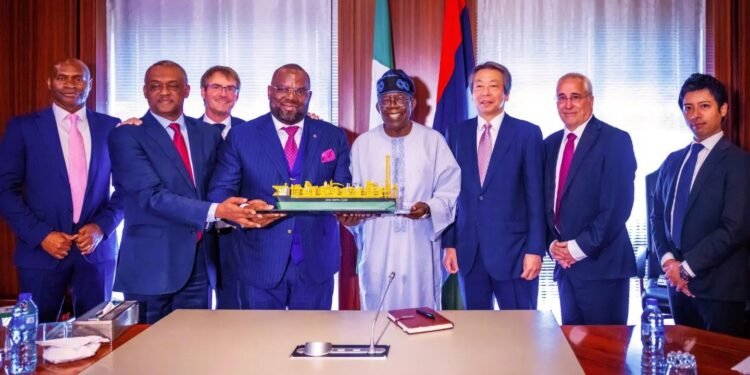Nigerian President Bola Tinubu has published plans for ministerial appointments, with confirmation expected on August 21.
Tinubu picked former Rivers State governor Nyesom Wike to handle the ministry overseeing the federal capital.
The president represents the All Progressives Congress (APC), while Wike hails from the People’s Democratic Party (PDP).
Wike famously fell out with the PDP presidential candidate, Atiku Abubakar, seemingly in protest at failing to win the presidential nomination himself. The PDP lost Rivers State in the February vote.
Oil man
Tinubu picked former Bayelsa State senator Heineken Lokpobiri to serve as minister of state for petroleum resources. Ekperipe Ekpo was named to minister of state gas resources.
Africa Oil Week hailed Lokpobiri’s appointment, saying he was a “recognised politician” from the Niger Delta who “brings significant expertise navigating Nigeria’s political scene”.
The new minister has the challenge of unlocking the “true potential of Nigeria’s petroleum industry. As a legal practitioner and environmental expert, he is well positioned to resolve several of the challenges currently affecting the sector,” AOW said.
AOW does not yet have official representation from Nigeria’s oil ministry, although it will hold a country spotlight on its second day. In October 2022, Nigeria’s then oil minister, Timipre Sylva, participated at the rival Africa Energy Week.
Lokpobiri served as minister of agriculture and rural development during the Muhammadu Buhari presidency. In September 2016, during a visit to Bayelsa, he said “decades of exploitation of oil and gas brought us no significant benefits as a people”.
The minister, like Wike, had previously been a member of the PDP. He defected to APC in 2015.
Lokpobiri has been wrapped up in a number of controversies over the years. The security services arrested him in 2011 in connection to electoral irregularities.
Nigeria’s president have tended to retain the role of minister of petroleum resources for themselves, and Tinubu appears to have continued this. The designation of “minister of state” is officially a junior position.
Tinubu’s appointment of a minister for gas is a departure for Nigeria. AOW said this showed the president’s commitment to “the development of a gas-based economy”.
Gas man
The new gas minister, Ekpo, is from Akwa Ibom. He had been a contender for a senatorial seat but stepped aside, in support of Godswill Akpabio. The latter had presidential aspirations but opted to drop out and support Tinubu. Akpabio is now the president of the Senate.
Initially, Tinubu declined to appoint a new minister for the Niger Delta, apparently over concerns the role was too similar to the Niger Delta Development Commission. However, over the weekend, the presidency announced Abubakar Momoh would take the role.
Tinubu picked Atiku Bagudu for the role of budget and economic planning. Bagudu was allegedly close to former military dictator Sani Abacha and was named by the US government in actions to claw back money stolen.
The cabinet faces a number of pressing issues, not least the economic headwinds as a result of the decision to scrap subsidies.
Fuelling up
Nigerian National Petroleum Corp. (NNPC) signed a deal last week for an emergency $3 billion with Afreximbank. The company said it had secured the facility against future crude oil production.
NNPC said the cash would help it in “settling taxes and royalties in advance”. The Nigerian government will use this advance to provide “necessary dollar liquidity to stabilise the naira, with limited risk”, NNPC said.
A stronger naira, NNPC continued, would reduce fuel costs. The company reiterated that subsidies would not return.
One way to tackle fuel challenges would be local supply. Nigeria has a number of illicit refineries, running on stolen crude. While the armed forces carry out periodic raids on these facilities, the trade continues.
The government launched a technical committee on August 16 aiming to bring the “artisanal oil refiners” into the mainstream. Comments from the oil ministry said the committee aimed to assess local skills and then “facilitate the mainstreaming of artisanal refineries to boost in-country refining capacity at the required specifications”.
Among a range of issues, the committee will examine how to provide oil and funds for such a legitimisation.
Updated at 7:51am on August 21 to include Niger Delta ministry.
Recommended for you











